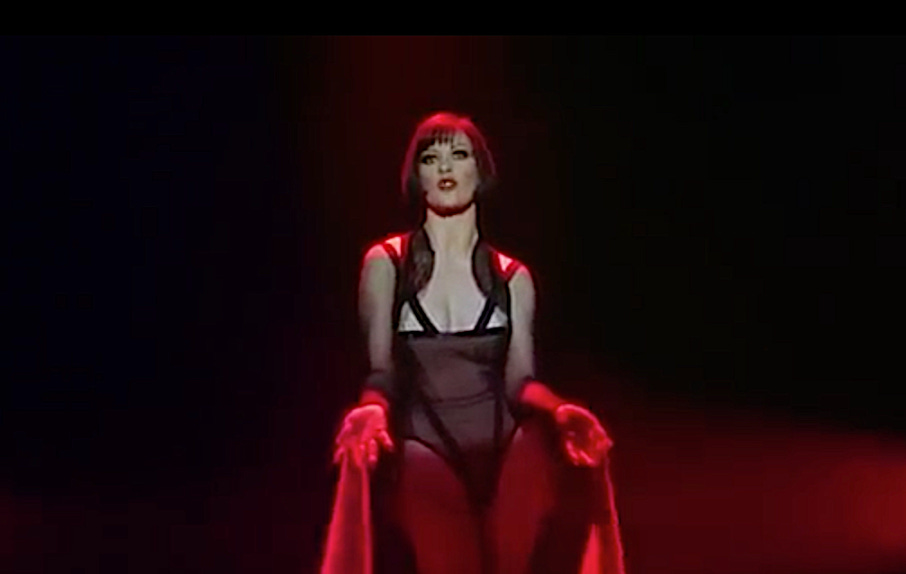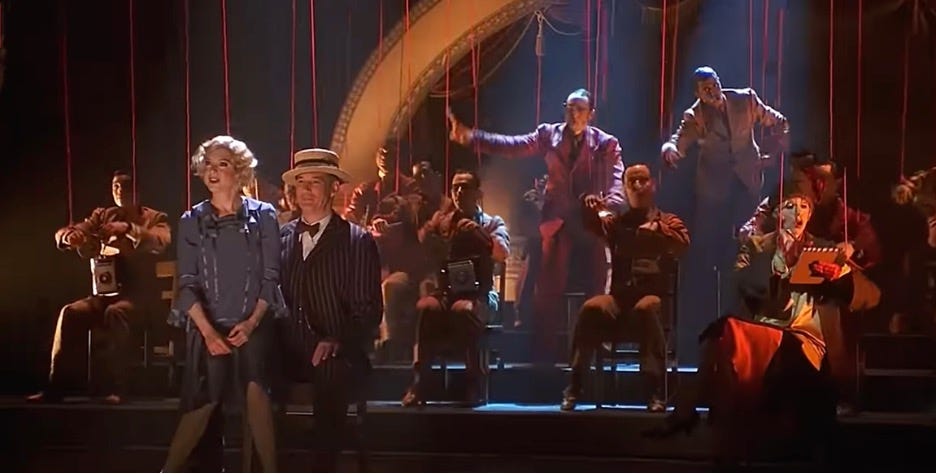“Chicago”: A Leap of the Imagination
Chicago
2002 Director: Rob Marshall
Starring: Renée Zellweger, Catherine Zeta-Jones, Richard Gere, Queen Latifah, John C. Reilly
Musicals, as a film genre, went out of favor with modern audiences some decades ago. They were very popular in the 1940s and 1950s but the “magic” they once had seems to have expired. It seems that one rarely hears about a new musical that audiences can’t wait to see these days.
Perhaps the problem with movie musicals is that they lack veracity. Let’s face it: how often has it happened that someone broke out into a song in anyone’s life as in “Oklahoma!” (1955) or “Camelot” (1967)? Personally, I’ve only seen such a thing happen in films or at the opera. The problem with musicals—as I (and perhaps modern audiences) see it—is authenticity.
One movie musical that handles this issue well is “Chicago.” In this film, set in 1924, Roxie Hart (Zellweger) is a young housewife who is bored with her life and her marriage. One night, she visits a Chicago nightclub, where she sees vaudevillian Velma Kelly (Zeta-Jones) sing and dance. She is enthralled by Velma’s performance and wants to become a star, just like her. This is implied subtly: as Roxie watches Velma’s act, the camera eventually goes to an extreme closeup of Roxie’s eyes, then Roxie—rather than Velma—sings on the stage. We witness a transformation as Roxie continues and finishes Velma’s song.
This metamorphosis, however, is only in her imagination. Its consequence is that Roxie starts to plan her new career. She begins an affair with Fred Casely (Dominic West), who promises to help her with her crusade. But Casely—a furniture salesman—has neither connections nor good intentions; he only wants to have sex with the beautiful Roxie. Unfortunately for him, Roxie shoots him dead near her bedroom when she discovers the truth. And, of course, she goes to jail.
Once in lockup, Roxie transforms everyone she meets through her imagination. One by one, they all become performers who tell their stories through song and dance, as part of their character development. The first is Matron Mama Morton (Latifah). Mama becomes a burlesque singer with colorful feathers, a sparkling tiara, and a glittering low-cut gown. The elegant, mysterious, pianist/master of ceremonies (Taye Diggs) introduces Mama, as if part of a nightclub act. In fact, he introduces almost all the acts. Latifah is sex-appeal personified in her act, and her song is filled with double entendres. And she sings her story to us “Ask any of the chickees in my pen; they’ll tell you I’m the biggest mother hen. . .”, suggesting that she takes care of her charges. But, in reality she actually “charges” them for any kindness or benevolence.
One night, Roxie witnesses an interesting performance: “The Cell-Block Tango,” by the Six Merry Murderesses of the Cook County Jail.1 These women, who killed their mates, tell of how they ended up in prison in their revue. In reality, the women relate their stories in various ways, one in a card game, another speaks to the press. And most of these women have no regret, as they sing, “He had it coming; he only had himself to blame. . . .” One by one, the women disclose their stories through song and dance. But they also do more than this: they also fictionally demonstrate their crimes toward their men: a stabbing, a poisoning, a choking, etc.
In the “Cell-Block Tango,” the women each use a subtle, but effective, prop in telling their tales—a long, red cloth, which comes to symbolize the men’s blood and death. The best of these performances, of course, is when Velma recounts her husband’s (and sister’s) death. She caught them cheating and shot them. She explains then that she was in a state of shock, blacked out, and couldn’t remember anything until she washed the blood off her hands. Two red cloths unfurl as streams from her hands; they are gory reminders of the gruesome act. And although she claims innocence here, the film’s viewers know otherwise from what they’ve already witnessed and from her rage-filled dance.
Two charming musical numbers in the movie must be mentioned here. As attorney Billy Flynn (the best criminal lawyer in Chicago), Gere performs the song: “All I Care About is Love.” Here, he tells us he doesn’t care for money, although in real life, he’s not interested in defending Roxie unless she can pay his exorbitant rate. Fortunately for Roxie, he is willing to take a pay cut and agrees to represent her. Perhaps the best musical number in the film is “We Both Reached for the Gun.”2 In this scene, Roxie and Billy tell her highly sanitized story to the press to curry favor in her trial. Billy previously coached her in her answers so she appears as a sweet, innocent young girl. In this scene, Billy is a ventriloquist and Roxie is a wide-eyed, doll-like dummy. Thus, he provides her statement for her. And the press—carefully manipulated puppets with red strings—simply write down what they are told. Her lies go unquestioned.
This film has many surprises in the way Roxie’s story is told. And much of it goes back and forth between reality and her fantasy. Her deep desires to be a star are guided by her wild imagination, which takes the viewer for a fantastic ride.
=-=-=-=-=
POSTSCRIPT
In returning to my original premise, the idea of people breaking into song, I must cite one Honorable Mention here. In “My Best Friend’s Wedding” (1996—which is not a musical), Julianne Potter (Julia Roberts) suddenly realizes she’s in love with her lifelong friend, Michael O’Neal (Dermot Mulroney), when he says he’s getting married and seeks to break up the couple. She hopes to make him jealous by saying her publisher, George Downes (Rupert Everett), is her fiancée. At the seafood restaurant, where the wedding party’s luncheon takes place, George embarrasses Julianne, stating he instantly fell in love with her when he met her at a mental institution while visiting “Dionne Warwick.” George supposedly says to “Dionne”: “Dionne, I’m in love. Could this siren love me? Are the gods that kind? And Dionne turned to me, opened her lovely eyes, and said, ‘The moment I wake up, before I put on my makeup. . . .’” The wedding party—and then the whole restaurant—begins singing Warwick’s hit, “I Say a Little Prayer”3 This includes elegant harmonies, piano accompaniment by a waiter, and other staff waving lobster mitts to the beat. One could only hope such musical merriment would spontaneously occur in real life. But don’t forget, this is also a movie.
Copyright © 2025 by Rosi Prieto, Ph.D.
All Rights Reserved
A clip of this scene is found here:
See:
A clip is here:








